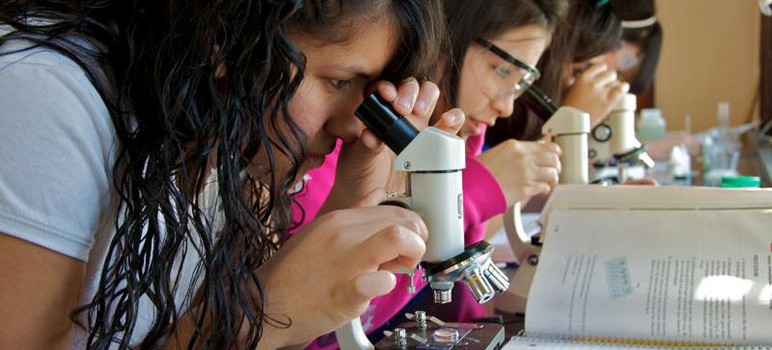Those of us who call Silicon Valley home have been fortunate recipients of a technological revolution these past several decades. From David Packard and Steve Jobs to Elon Musk, Susan Wojcicki (Senior VP of Google) and Mark Zuckerberg, all have championed an ethos of iconoclasm that has led to this region's exceptional reputation.
But there’s danger on the horizon.
A mismatch exists between the needs of the 21st century workforce and the skill sets our public school graduates possess. Unless we improve teacher quality and school leadership over the next several years, our region may lose its standing as a global economic engine.
Our local education system has been excruciatingly slow to adapt. The tech economy is one built on constant change, an incessant cycle of failure and success. The public education system—preschool through university—should reflect that, and mirror the leadership and risk-taking of the high-tech landscape. I worry educators in Silicon Valley still don't get it.
I’ll share two cases in point.
First, federal funding. On Sept. 25, the U.S. Department of Education awarded $35 million in grants to recruit, train and support more science, technology, engineering and math teachers around the nation. Silicon Valley was left in the dust.
Not a dime of that money came to our region. Under these federal grants, teacher preparation programs must be created to expand the pool of quality new instructors, including those in early-childhood learning.
California grants recipients included: CSU Chico, which received $6.5 million; CSU Dominquez Hills, $12.5 million; Cal State L.A. University, $11 million; Fresno Unified S.D., $7.8 million; CSU Bakersfield, $7.3 million; Regents of UCLA, $8.1 million; and University Corporation of Monterey Bay, $8.6 million.
One must ask: Why, in the heart of Silicon Valley, did teachers receive zero cash from this program to boost STEM education?
Many of the 24 grantees were developing teacher residency programs similar to those in the medical field. San Jose State University should work integrally with Silicon Valley Leadership Group, Silicon Valley Education Foundation and the Santa Clara County Office of Education to forge 21st century residency teacher model programs.
Second, we need to connect learning to careers. For several years, state Sen. Darrell Steinberg (D-Sacramento) has said this should be California’s number one priority. His legislation to begin a California Career Pathways Trust received funding in Gov. Jerry Brown’s 2014-15 budget. This funding included 10 of 40 grants that would receive up to $15 million for three years. Eligible for funding were school districts (we have 31), county offices (we have one), community college districts (we have three) and public charter school campuses that work collaboratively with businesses, civic organizations, or other partners with ambitious goals.
Again, Silicon Valley came away with nothing. Not one single dollar of the $250 million set aside was directed toward South Bay schools. Yet there is some hope. A new round of funding has presented itself.
On Sept. 26, the Silicon Valley Leadership Group hosted a workshop about the career pathway movement. I was invited by Aditi Goel, the group's director for education policy. Goel 's graduate professor from Harvard, Robert Swartz, presented. He told the 60 or so attendees that they chose to host the workshop at Microsoft, in Sunnyvale, because Silicon Valley was underrepresented in the first round of applications. I was appalled to hear it. How could that be?
Applications for the second round of funding will be out at the end of this month. Ten more $15 million dollar grants are up for grabs. It is critical for Silicon Valley to put together a winning application. Our region must be a leader in this effort.
Teacher and student workforce development is the key to Silicon Valley sustaining itself as a worldwide leader in technology. Today our regional grade is a ‘D’ on that goal. We must earn a better grade or risk getting left behind.


You didn’t metion Woz!!!!!!!!!!!!!!!! Blasphemy!!!!